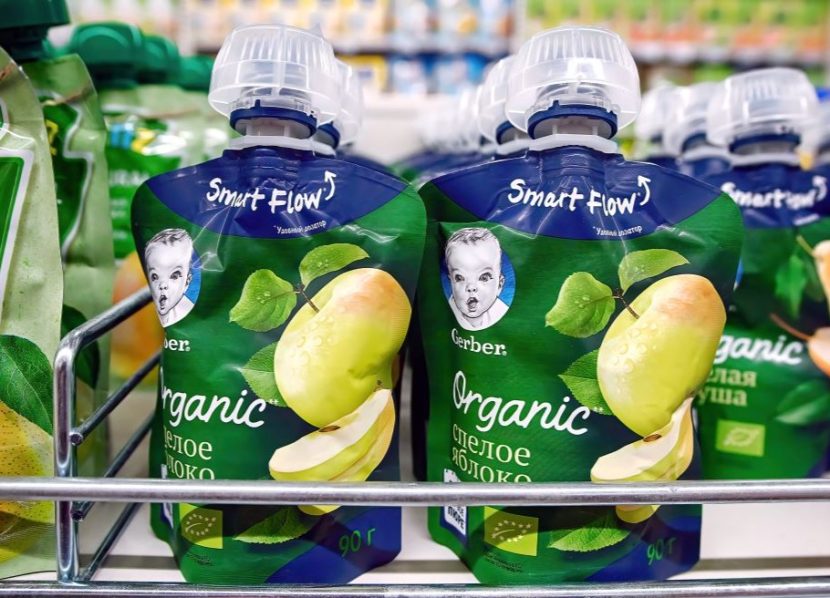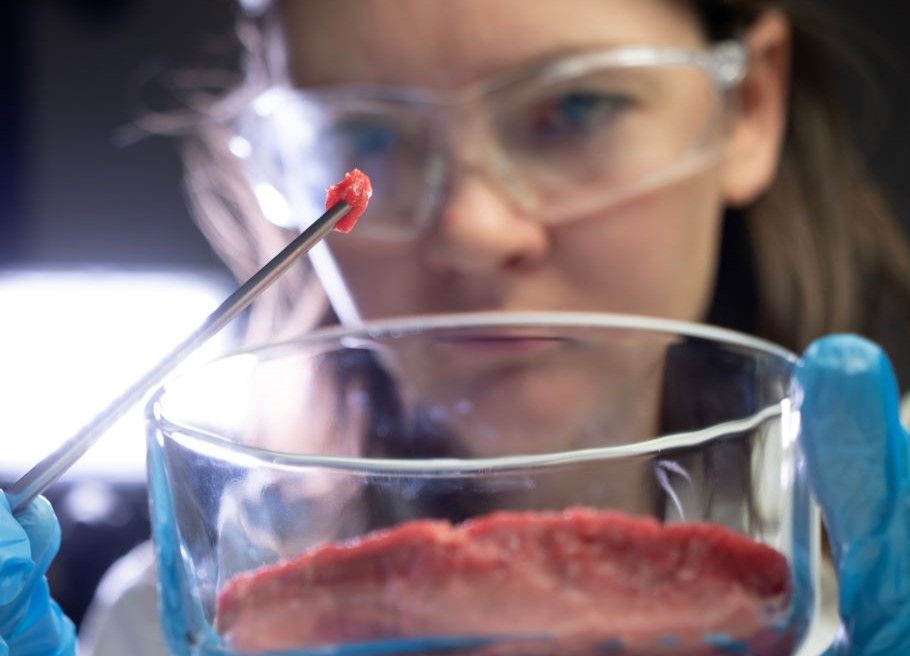Heavy Metals in Baby Food: Regulating Raw Ingredients to Ensure Food Safety
By Jaclyn Bowen
In recent years, the issue of heavy metal contamination in baby food has emerged as a pressing concern, prompting nationwide scrutiny and calls for stronger regulations. Parents, health experts, and policymakers have been alarmed by reports revealing the presence of arsenic, lead, cadmium, and mercury in popular baby food brands. This troubling revelation has ignited a demand for stricter oversight and greater transparency in the production and labeling of baby food. However, as federal responses to heavy metals in baby food have been perceived as inadequate, states have taken proactive measures to address this issue, spearheading efforts to protect the health and safety of our youngest consumers.
Given the current state of food safety, the mantra ‘trust but verify’ is critical in supplier assurance systems.
California Assembly Bill 899
Amidst growing public outcry, states like California and Maryland have led the charge to implement robust regulatory measures to mitigate the risks associated with heavy metal exposure in baby food. AB 899, enacted to safeguard the health and well-being of its youngest residents, represents a pivotal milestone in this endeavor. Recognizing the vulnerability of infants and young children to the harmful effects of heavy metals in baby food, while ensuring food safety, the bill emphasizes transparency and accountability within the food industry.
Effective from January 1, 2024, AB 899 mandates that baby food manufacturers conduct regular testing of their products for heavy metal contamination. This proactive measure aims to identify and mitigate potential risks before they reach consumers. Furthermore, the legislation requires manufacturers to disclose the results of these tests to state regulators, promoting transparency and accountability in the production process.
One of the key provisions of AB 899 is the requirement for public disclosure of heavy metal test results, which will come into effect on January 1, 2025. This ensures that parents and caregivers can access even more information about the baby food products they purchase. By empowering consumers to make informed choices, the bill enables them to prioritize the health and well-being of their children.
In addition to promoting transparency, AB 899 places a strong emphasis on preventive measures to minimize the risk of heavy metal exposure in baby food. The legislation encourages manufacturers to adopt best practices in sourcing ingredients and production methods, such as selecting low-contaminant raw materials and implementing effective quality control measures. By proactively addressing potential sources of contamination, the bill aims to minimize the presence of heavy metals in baby food from the outset, safeguarding the health of California’s youngest and most vulnerable consumers.
The state of Maryland follows suit
Following California’s lead, Maryland introduced ‘Rudy’s Law’ in April 2024, named after 18-month-old Rudy Callahan, who suffered lead poisoning from tainted applesauce pouches. This legislation, like AB 899, requires baby food manufacturers to disclose the presence of heavy metals such as arsenic, lead, cadmium, and mercury in their products. By mandating this disclosure, effective January 2026, ‘Rudy’s Law’ empowers consumers to make informed decisions about the products they feed their families, fostering trust and accountability in the baby food industry.
State Attorneys General call for federal regulatory reform
While state-level initiatives have made significant strides in addressing heavy metal contamination in baby food, there is a growing recognition of the need for federal action to establish uniform standards and ensure consistency across state lines. State attorneys general from across the United States are calling for the federal regulation of heavy metals in baby food by the Food and Drug Administration (FDA). Their collective effort underscores the importance of a comprehensive, nationwide approach to addressing this pressing public health concern.
The attorneys general from 20 states have sent a letter to the FDA urging the agency to take action on heavy metals in baby food and food for young children. This coordinated effort reflects a shared commitment to protecting the health and well-being of infants and young children, who are particularly vulnerable to the harmful effects of heavy metal exposure.
Heightened Scrutiny of Ingredients Will Impact Other Food Categories
In response to growing attention from consumers, media, and regulators regarding heavy metals in baby food, the industry has acted. Proactive measures such as enhanced testing, risk assessments, and reevaluations of supplier assurance programs and food safety systems are underway. This heightened scrutiny of ingredients signals a tightening of standards within the baby food sector, potentially impacting other areas of the food industry.
A crucial step in ensuring the safety of baby food products is the rejection of raw materials that fail to meet specifications. Manufacturers implement rigorous testing and quality control protocols to detect elevated levels of contaminants like heavy metals. By refusing raw materials that do not meet standards, manufacturers mitigate the risk of heavy metal contamination, ensuring compliance and protecting the health of infants and young children.
Depending on the circumstances, rejected materials may be returned to suppliers and reintegrated into the supply chain. While current regulatory focus is on products aimed at vulnerable populations, scrutiny shouldn’t end there. As one industry addresses this quality assurance issue, it potentially poses new challenges for others. Given the current state of food safety, the mantra “trust but verify” is critical in supplier assurance systems.
About the Author
Jaclyn Bowen MPH, MS is a food safety and quality systems engineer and executive director of Clean Label Project, a US-based national non-profit and consumer advocacy organization with the mission to bring truth and transparency to food and consumer product labeling. Bowen was the researcher and co-author behind the largest academic peer-reviewed study ever conducted on lead and cadmium in baby food and infant formula, which was published in the international multidisciplinary journal, Science of the Total Environment. Before coming to Clean Label Project, Bowen held numerous technical, standards development, food safety, quality, and executive roles within the World Health Organization Collaborating Centre, NSF International. She holds a Bachelor of Science in environmental biology, a Master of Science in quality engineering and a Master of Public Health in management and policy.

-
 FeaturedRisk management
The Cost of a Breach: What a Cyberattack Could Mean for Food Safety Recalls
FeaturedRisk management
The Cost of a Breach: What a Cyberattack Could Mean for Food Safety Recalls
-
 FeaturedRisk management
Securing the Food Chain: How ISO/IEC 27001 Strengthens Cybersecurity
FeaturedRisk management
Securing the Food Chain: How ISO/IEC 27001 Strengthens Cybersecurity
-
 FeaturedRisk management
Revolutionizing Food Safety Training: Breaking Out of the “Check-the-Box” Mentality
FeaturedRisk management
Revolutionizing Food Safety Training: Breaking Out of the “Check-the-Box” Mentality
-
 GFSI Standards
GFSI 2025: Building Trust, Tech-Forward Solutions, and Global Unity in Food Safety
GFSI Standards
GFSI 2025: Building Trust, Tech-Forward Solutions, and Global Unity in Food Safety
-
 FeaturedFood Safety
Integrated Pest Management: Strategies to Protect Your Brand’s Reputation
FeaturedFood Safety
Integrated Pest Management: Strategies to Protect Your Brand’s Reputation
-
 FeaturedFood Safety Culture & Training
No Open Door Policy: Challenges That Impact Pest Control in Food Processing Plants
FeaturedFood Safety Culture & Training
No Open Door Policy: Challenges That Impact Pest Control in Food Processing Plants




